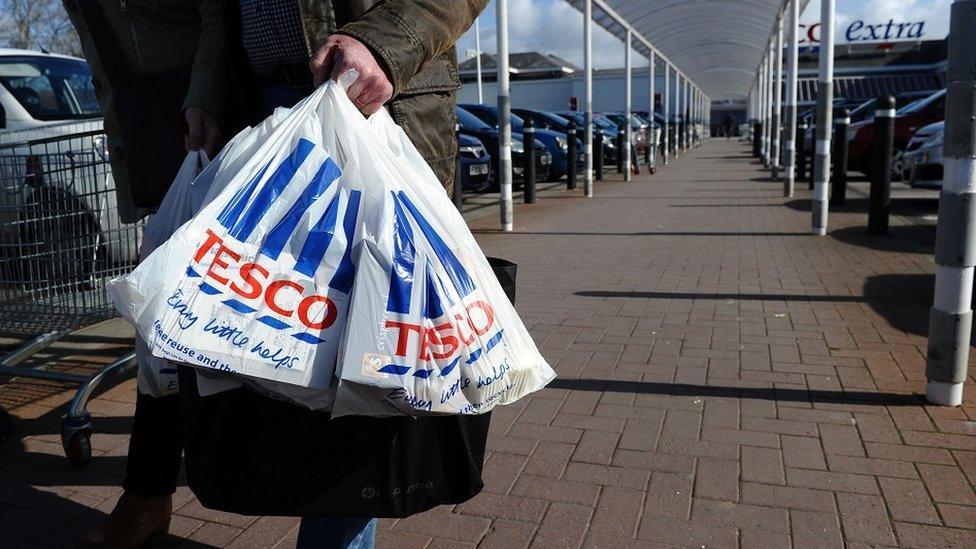Tesco full-year pre-tax profits hit by fine
- Published
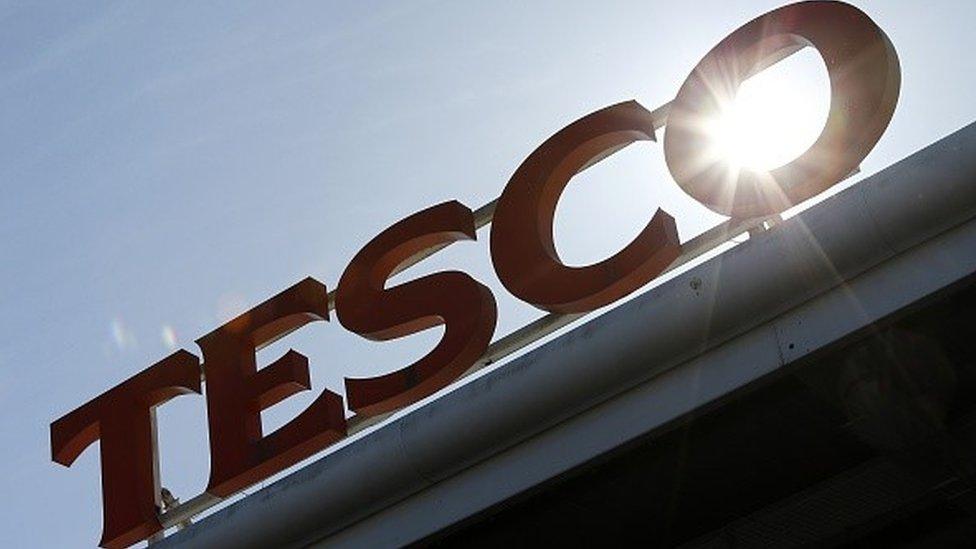
Supermarket giant Tesco has reported a fall in full-year pre-tax profit after it was fined for overstating its profits in 2014.
It said it had taken a £235m charge after it agreed a deferred prosecution with the Serious Fraud Office and the Financial Conduct Authority in March.
However, Tesco said it exceeded its full-year operating profit target, external.
Like-for-like sales, which strip out the impact of new store openings, grew 1% in the year to 28 February.
UK like-for-like sales were up 0.9%, their first reported growth since 2009-10.
However, Tesco shares closed down 5.7%, making it the biggest faller on the FTSE 100. The stock has now declined more than 10% this year.
Tesco chief executive Dave Lewis said the results showed "another solid year of progress" at the supermarket giant.
"The very pleasing thing is that on every dimension of customer service we've had positive feedback from customers of the service that we're giving, and that's allowed us to drive an improvement in both sales and indeed profitability," he told the BBC's Emma Simpson.
Booker deal
Full year pre-tax profit, which includes one-off charges such as legal costs, fell from £202m to £145m.
But Tesco's operating profit figure, which strips out exceptional items and reflects the performance of the business, was £1.28bn, exceeding Tesco's £1.2bn target.
By 2020, Mr Lewis wants Tesco to make between 3.5p and 4p of operating profit for every £1 spent by shoppers, up from 2.3p in 2016-17. The company is banking on rising sales, allowing it to cut £1.5bn of costs.
The supermarket also needs strong results to help it persuade shareholders to back its attempt to buy wholesaler Booker.
Last month, one of its biggest shareholders said it had "major concerns" about the £3.7bn bid, saying it was overpaying.
Tesco said the deal would improve its recovery plans.
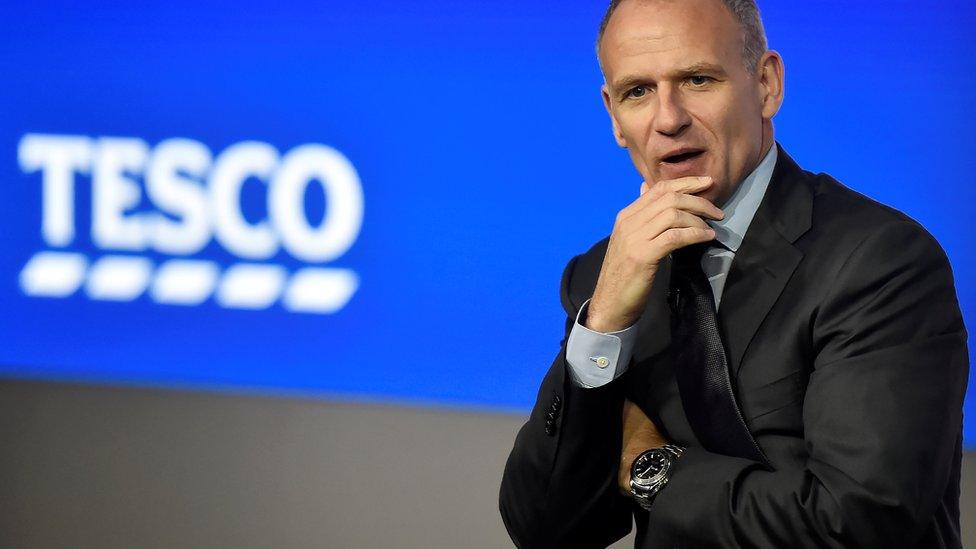
Tesco boss Dave Lewis admits some prices have risen
The supermarket giant's pension deficit more than doubled from £2.6bn to £5.5bn after higher inflation, said Hargreaves Lansdown analyst Laith Kalaf.
"The supermarket is facing the prospect of a rise in pension contributions because its scheme valuation is rather inconveniently taking place now, when interest rates are low and inflation is rising, both of which will serve to magnify the deficit," he said.
Kantar Retail analyst Ray Gaul said Tesco can "successfully put the accounting scandals of the past behind them having settled legal affairs".
"Now, Tesco will begin to fight all of its battles on the front foot," he said.
Upcoming "battles" include regulatory battles over the proposed Booker deal.
Suppliers raising prices to cope with increased costs will be another test, Mr Gaul said. The pound has substantially weakened since the UK's vote to leave the European Union in June, pushing up the cost of imports.
The rate of grocery price inflation is expected to rise to 2.3%, with higher rises on the horizon, he added.
Price hikes
Dave Lewis told the BBC that Tesco "want to do everything we can to stop prices rising ... but the fact is, they are, and there is some pressure in terms of pricing".
He said customers were starting to shift spending to "fresh food" and "everyday essentials" rather than "luxuries".
Supermarkets have been contending with factors including rising costs, the devaluation of the pound and structural shifts in the industry.
Mr Lewis said: "It's no surprise that the industry has been under pressure, but it has been under pressure for the last three or four years as well. Actually I think that where we sit as Tesco now is stronger than we've been for quite some time."
- Published27 February 2017
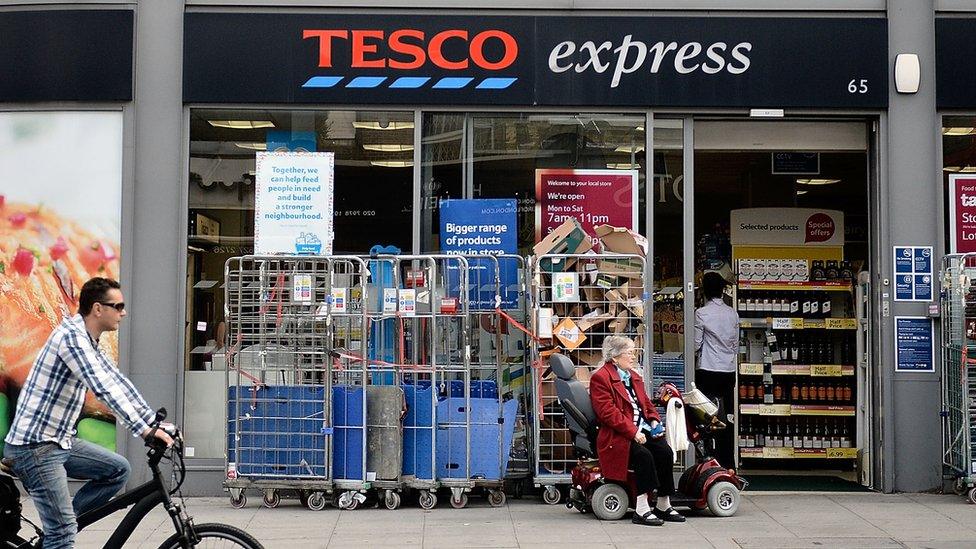
- Published13 February 2017
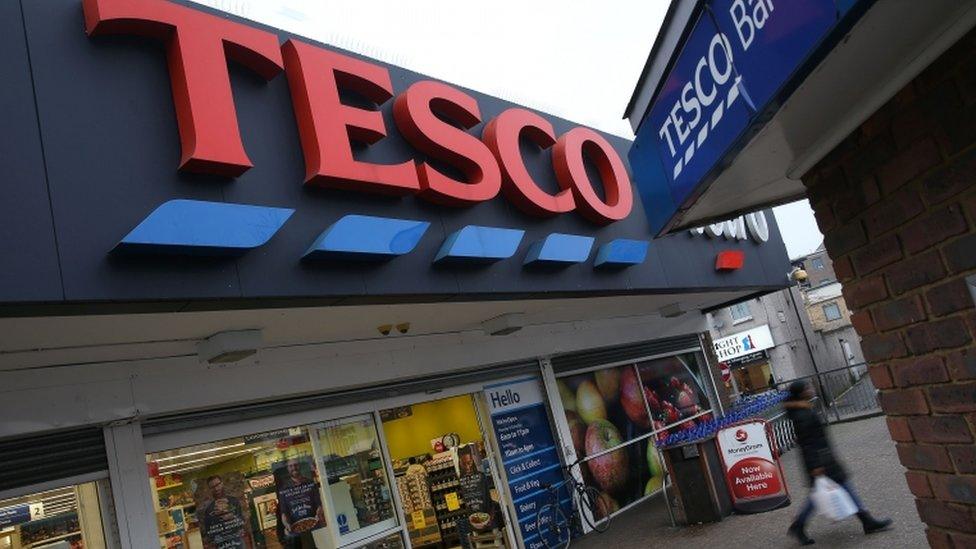
- Published27 January 2017
